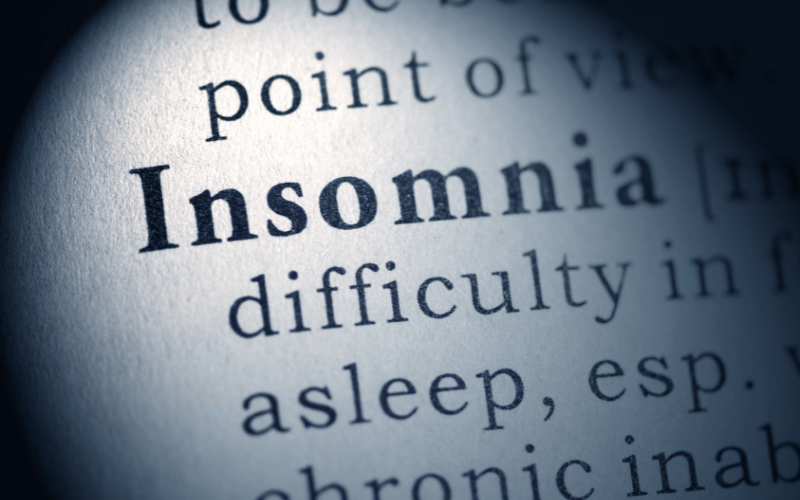Introduction: Unmasking Insomnia’s Many Faces

Insomnia, more than just a medical term or a fleeting experience, paints a vivid picture of restless nights, a desperation for rest, and hours of frustrating wakefulness. Most people think they know insomnia, associating it solely with the inability to fall asleep. However, the reality of this sleep disorder is far more intricate, with layers of symptoms that go beyond the surface.
What is it like to have insomnia? Imagine a night where every time you close your eyes, a barrage of thoughts storms your mind. It feels like an invisible hand keeps pulling you from the brink of sleep back into wakefulness. Or perhaps it’s more of an inconsistent rhythm, where you drift in and out of sleep, never really feeling truly rested.
Yet, insomnia isn’t confined to the night. It leaves its footprints in your daytime activities, reflecting in your mood swings, lapses in concentration, and that ever-present cloak of fatigue that seems impossible to shake off. Moreover, it’s not just about those noticeable signs. Many insomniacs grapple with less obvious symptoms, each hinting at the depth of the sleep disorder’s impact.
Diving deeper into these symptoms not only helps us understand insomnia but also throws light on the importance of good sleep. After all, sleep isn’t just about physical rest. It’s the body’s mechanism for repair, rejuvenation, and, importantly, resetting the brain. Insomnia disrupts this vital process, leading to a cascade of effects.
Symptom 1: Difficulty Falling Asleep

Falling asleep might seem like a basic human function, but for some, it’s akin to scaling a mountain. The moment their head hits the pillow, a whirlwind of thoughts engulfs the mind. For many, this becomes a nightly ritual: being encircled by anxieties, overthinking the events of the day, or pondering the future. This mental restlessness is often at the forefront of their insomnia. They might even find themselves reliving embarrassing moments from the past, or worse, dreading fictional scenarios that are yet to come.
It’s not always just the mind that’s to blame. Physical discomfort often plays a pivotal role in keeping people awake. The room might be too hot or cold, or maybe the mattress doesn’t offer adequate support. Sometimes, it’s a subtle itch or a recurring pain that becomes glaringly prominent in the silence of the night. For some, their own body becomes the barrier, with restless leg syndrome causing involuntary leg movements or gastroesophageal reflux causing heartburn that disrupts their attempt to drift off.
Let’s not forget the environment. External factors can wield immense power over one’s sleep quality. An inconsistent noise from the fridge, the distant bark of a neighbor’s dog, or even the intermittent light from a passing vehicle can sabotage sleep. These factors, though seemingly insignificant during the day, gain prominence during the quiet of the night. For someone battling insomnia, these disturbances act as anchors, keeping them tethered to wakefulness.
There’s a term in the world of sleep science: sleep hygiene. It involves creating a conducive environment for sleep. This means eliminating electronics that emit blue light, ensuring the room is dark and quiet, and keeping it at a comfortable temperature. But for those with insomnia, even the perfect environment might not guarantee sleep. They might find themselves tossing and turning, adjusting their pillows endlessly, and constantly checking the clock, which only amplifies their anxiety about not sleeping.
Perhaps the most insidious part of the difficulty in falling asleep is the self-perpetuating nature of the problem. The stress of not being able to sleep often compounds the issue. It’s a vicious cycle: one struggles to sleep, gets stressed about it, and then finds it even harder to doze off because of said stress. Over time, bedtime may even become a source of dread, a nightly ordeal rather than a restful retreat. (1)